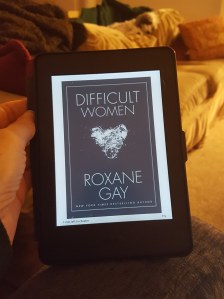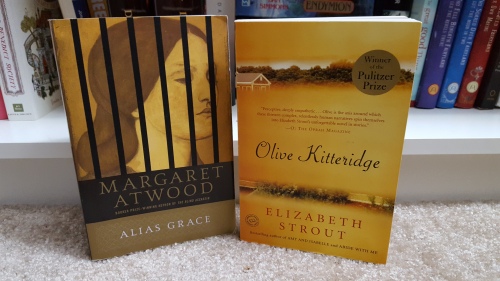The end of the year is approaching quickly, and that means it’s time to talk about books!
This year I took a reading vacation and also got to read more during my time in Europe, so I’ve read 70 books so far. (And I’m in the middle of two more great ones!) About a quarter of my reading was YA and about a third was SF/F. I continued to explore the romance genre after trying it out last year, and I made more effort to read some horror. 83% of my reading was written by women and non-binary individuals, and 36% of my reading was written by writers of color.
I’m not discussing some truly excellent titles because I had to winnow down the list somehow, which is how I can tell what a strong reading year it’s been. I tried to choose books that have left a lasting impression on me.
Best Nonfiction:
So You Want to Talk about Race, by Ijeoma Oluo
I honestly feel that the world would be a better place if this were required reading. Ijeoma Oluo does a masterful job explaining common issues of race in an accessible and insightful way.
The Spy and the Traitor, by Ben Mcintyre
This biography of Cold War double agent Oleg Gordievsky read like a novel and kept me turning pages. I even had to check Wikipedia at one point because I was so worried about what was happening, I couldn’t bear not to know any longer. If you’re a fan of spy stories like I am, you’ll love this book.
The Art of Description, by Mark Doty
This book, a kind of love letter to language, helped refine my understanding of description, poetry, and the different possibilities of wordcraft more than I thought possible. It has changed the way I read, and hopefully also the way I write. Highly recommended for writers.
Best Romance:
A Princess in Theory, by Alyssa Cole
This is my favorite contemporary romance I read this year. As silly as it was, I enjoyed the premise of the long-ago-forgotten arranged marriage, the series of scam-like emails that followed, and the journey of the two protagonists as they figured out how to be their best selves together.
The Duchess War, by Courtney Milan (and the rest of the Brothers Sinister series)
This is my favorite historical series of the year. I enjoyed all four novels, featuring heroines of character, wit, and determination who weren’t afraid to do incredible things in a society stacked against women.
Best Literary Fiction:
The Wife, by Meg Wolitzer
I read this without realizing a movie was coming out this year based on the book, which was also good, and it definitely struck a personal chord. It’s hard to talk about without giving away the twist, but broadly it’s about the struggle for women writers in the literary world.
Best YA:
The Epic Crush of Genie Lo, by F.C. Yee
Great contemporary fantasy with a sassy, not-here-for-any-of-your-shit heroine, a cool take on mythology, and lots of punching.
The Lie Tree, by Frances Hardinge
I finally got around to reading a book by Frances Hardinge, and the good buzz was all true! A wrenching, riveting historical fantasy with lie-fueled magic that is way cool.
In Other Lands, by Sarah Rees Brennan
My friends and I regularly talk excitedly about this book, and one of my friends even read a related short story out loud to me while I was recovering from surgery. Because it was guaranteed to take my mind off how sick I felt, that’s how good it is. This portal fantasy starts out slowly, but Sarah Rees Brennan is so skillful at subverting and playing with tropes and her characters are so fascinating and three-dimensional, this was one of the books I didn’t want to end.
Sadie, by Courtney Summers
This gut punch of a contemporary novel alternates chapters between a podcast searching for a missing teenage girl and a first-person account from the girl in question, and it will break your heart.
The Astonishing Color of After, by Emily X.R. Pan
This contemporary novel with fantastical elements is a touching illustration of the grief of a teenager after her mother commits suicide, and the most realistic depiction of life with a depressed and suicidal mother I’ve ever read. It was tough for me to get through, but I’m glad I read it.

Best Science Fiction, Fantasy, and Horror:
The Left Hand of Darkness, by Ursula K. LeGuin
Sometimes you read a book and you realize you’ll carry it with you for the rest of your life. This is one such novel.
An Unkindness of Ghosts, by River Solomon
This ambitious science fiction novel uses its generation ship setting to explore structural racism in heart-rending depth. Definitely a writer to watch.
An Excess Male, by Maggie Shen King
What happens when the gender proportions in society become completely out of whack? This science fiction novel, set in a not-so-distant China, features well-realized characters and an interesting plot at the intersections of the political and personal.
The Power, by Naomi Alderman
Another speculative novel exploring gender roles and their political ramifications, the conceit here is that all women develop the power to generate electricity. Chaos ensues in this dystopia that explores what would happen if the world suddenly was being run by women. The answer isn’t as pat as you would think.
A Head Full of Ghosts, by Paul Tremblay
This is such a solid horror novel, it makes me happy thinking about it. It features an unreliable narrator, a family saga, and a great twist.
Experimental Film, by Gemma Files
This horror novel does an excellent job combining the personal with the bigger lurking darkness as the flawed narrator struggles with family life while investigating a cache of lost films. Knowledge and love of film is steeped in the pages of this novel, adding richness to its story.
The Beauty, by Aliya Whiteley
I was looking for horror that would hit me in a visceral way, and apparently body horror dystopia in which all women have died from a plague scratches that itch for me. In terms of tone and atmosphere, this novella does a truly excellent job.
The Book of M, by Peng Shepherd
In the contemporary dystopia fantasy novel, a plague spreads around the world in which people’s shadows suddenly and mysteriously disappear, followed by the fading (at variable rates) of their memories. If you liked Station Eleven, you might want to give this novel a try. It was one of the most interesting and emotionally affecting of the novels I read last year, steeped in an almost recognizable strangeness, with compelling characters, plot twists, and themes.
*****
There are so many more books to read! My list is forever growing, and I have (ahem) a bit of a backlog with my library holds. I’m already looking forward to what’s next!









